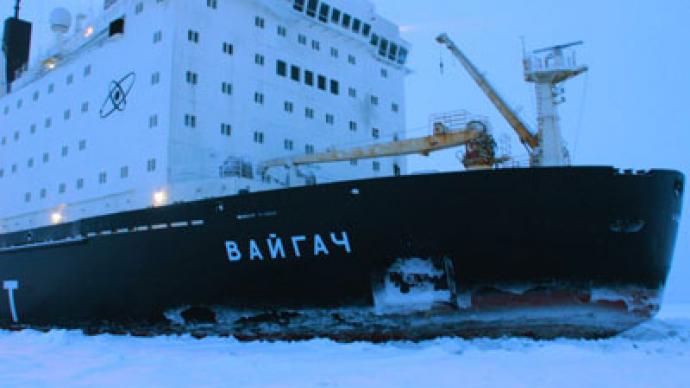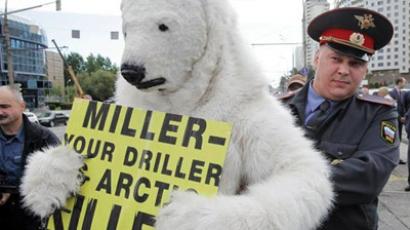Race for Arctic resources shouldn’t spark new Cold War – Russian official

With global demand for energy resources surging, the Russian Foreign Ministry expressed hopes that there will never be a “war for resources” – or an even “hotter” conflict – in the Arctic Region.
Foreign Ministry official Alexander Gorban expressed confidence that no such conflict over resources would ever take place."We are trying to fight for the Arctic shelf, but in light of recent events involving the Shtokman field, [other sources of fuel] will prevail," Gorban told Interfax on Wednesday. Gazprom announced last month that its foreign partners were withdrawing from the Shtokman project due to cost concerns. Other reasons for the pullout include the shale gas revolution in the United States, which had been viewed as a primary export market for Shtokman. Foreign companies like Total claimed that the project has not been canceled, but simply postponed. Russia has been a pioneer in the research and development of Arctic fuel sources. In 2007, a Russian expeditionary team made a daring 4,000-meter descent to the seabed of the Arctic Ocean – a historic first. The expedition aimed to prove that the Lomonosov Ridge is an extension of Russia's landmass.If Russia’s claims are validated, the find will increase the nation's claims on the continental shelf by 1.2 million square kilometers (460,000 square miles). This area is said to hold some nine or ten trillion tons of hydrocarbon reserves.There are five Arctic-bordering countries that have laid claim to the vast deposits of natural resources deep below the region’s frigid waters: Russia, the United States (via Alaska), Canada, Norway and Denmark (via Greenland). The United Nations Convention on the Law of the Sea (UNCLOS) gives each nation a ten-year period to register a claim to their portion of the continental shelf. If valid, each country would have exclusive rights to resources on or below their area’s seabed.Meanwhile, the Russian Northern Fleet's missile cruiser ‘Peter the Great’ is set to conduct a series of exercises in the Arctic, the Defense Ministry announced on Wednesday.“The Peter the Great is departing from its home base of Severomorsk and will head to the Arctic zone of the Northern Sea Route,” a Navy spokesperson said on Wednesday. “Here, the ship will do a series of exercises based on its regular combat training schedule.”The Peter the Great's journey also complies with the Russian Maritime Doctrine governing the country’s resumed naval presence in strategic regions, the spokesperson said.












